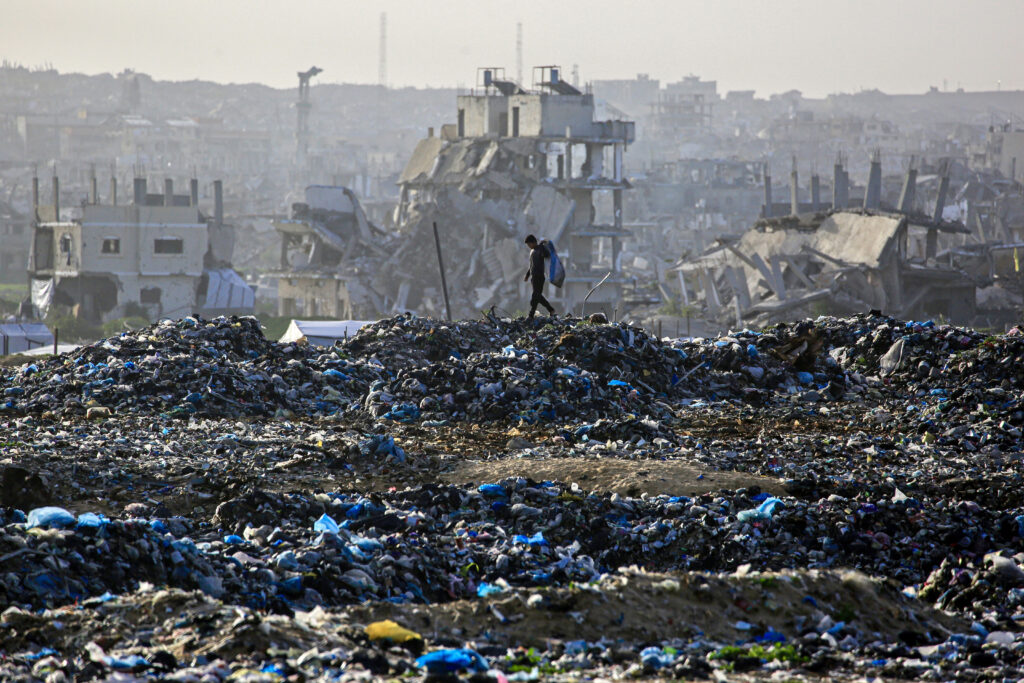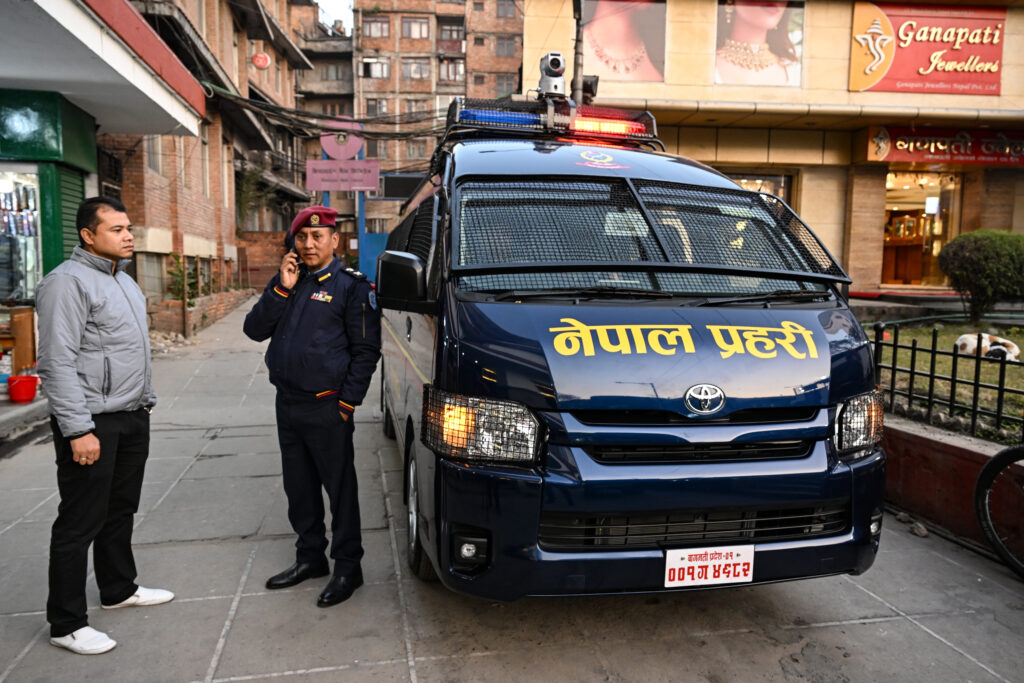Israel agrees to reopen Rafah crossing only for Gaza pedestrians
Israel said Monday it would only allow pedestrians to travel through the Rafah crossing between Gaza and Egypt as part of its “limited reopening” once it has recovered the remains of the last hostage in the Palestinian territory.Reopening Rafah, a vital entry point for aid into Gaza, forms part of a truce framework announced by US President Donald Trump in October, but the crossing has remained closed since Israeli forces took control of it during the war in the Palestinian territory.Visiting US envoys had reportedly pressed Israeli officials to reopen the crossing during talks in Jerusalem over the weekend.World leaders and aid agencies have repeatedly pushed for more humanitarian convoys to be able to access Gaza, which has been left devastated by more than two years of war and depends on the inflow of essential medical equipment, food and other supplies.Prime Minister Benjamin Netanyahu’s office said on Monday that Israel had agreed to a reopening “for pedestrian passage only, subject to a full Israeli inspection mechanism”.The move would depend on “the return of all living hostages and a 100 percent effort by Hamas to locate and return all deceased hostages”, it said on X.It remained unclear whether the reopening would allow medical patients to leave Gaza for treatment in Egypt or other countries.The Israeli military said it was searching a cemetery in the Gaza Strip on Sunday for the remains of the last hostage, Ran Gvili.”Upon completion of this operation, and in accordance with what has been agreed upon with the US, Israel will open the Rafah Crossing,” said Netanyahu’s office.The announcement came after Gaza’s newly appointed administrator, Ali Shaath, said the crossing would open “in both directions” this week.”For Palestinians in Gaza, Rafah is more than a gate, it is a lifeline and a symbol of opportunity,” Shaath said at the World Economic Forum in Davos on Thursday.Several Gazans told AFP that it was depressing to hear Israel had only agreed to a limited reopening of the crossing.”After two and a half years of war, doesn’t the world realise that the entire population of Gaza is ill, and that people have the right to choose whether to stay or leave, even if only temporarily?” said Mohammed Ala, 49, who has not seen his wife since she travelled to Egypt for medical treatment before the war began.Maha Youssef, 37, who was displaced to eastern Gaza City during the war, said “travel is a dream of returning to life” for Gazans.”Even if it is financially difficult and likely unstable, my children would be able to see what a normal life looks like and live it, at least they would be able to go to school,” she said.Israeli media had also reported that US envoys Steve Witkoff and Jared Kushner had urged Netanyahu to reopen Rafah during their Jerusalem talks.Before the war erupted in October 2023, Rafah had been the only gateway connecting Gazans to the outside world and enabling international humanitarian aid to enter the territory, home to 2.2 million people living under Israeli blockade.- Last hostage -A spokesman for Hamas’s Ezzedine Al-Qassam Brigades, Abu Obeida, said on Sunday that the group had “provided mediators with all the details and information in our possession regarding the location of the captive’s body”, referring to Gvili.Obeida added that “the enemy (Israel) is currently searching one of the sites based on information transmitted by the Al-Qassam Brigades”.Except for Gvili, all of the 251 people taken hostage during Hamas’s October 7, 2023 attack on Israel have since been returned, whether living or dead.A non-commissioned officer in the Israeli police’s elite Yassam unit, Gvili was killed in action on the day of the attack and his body was taken to Gaza.The first phase of the US-backed ceasefire deal had stipulated that Hamas hand over all the hostages in Gaza.Gvili’s family has expressed strong opposition to launching the second phase of the plan, which includes reopening Rafah, before they have received his remains.”First and foremost, Ran must be brought home,” his family said in a statement on Sunday.The Gaza war was sparked by Hamas’s attack on Israel, which resulted in the deaths of 1,221 people, according to an AFP tally based on official Israeli figures.The Israeli retaliation flattened much of Gaza, a territory that was already suffering severely from previous rounds of fighting and from an Israeli blockade imposed since 2007.The two-year war between Israel and Hamas has left at least 71,660 people dead in Gaza, according to the territory’s health ministry, figures considered reliable by the United Nations.burs-my-jd/jfx







